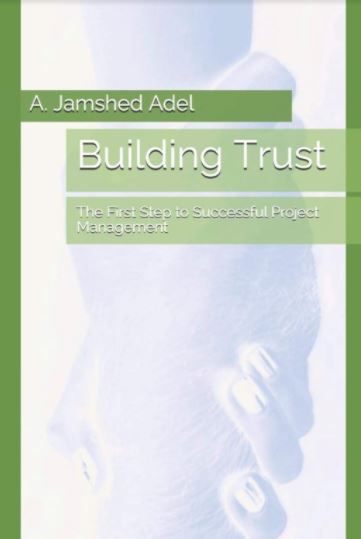The following is an excerpt from “Building Trust: The First Step to Successful Project Management,” a book recently authored by A. Jamshed Adel, an alumnus of the Master of Professional Studies in Project Management at Georgetown SCS.
When I started my career in project management as a project assistant years ago, the initial feedback from my first boss suggested that I exceeded expectations in one part of my performance—following processes and accomplishing tasks exactly as I was told to do. Being at an entry level position and given the job market competition at the time, during the first few months I was extremely excited just to have a job. My goal was to ensure the security of my employment by meeting expectations of the job as I was directed. I was motivated and interested. My boss and I had no complaints from each other. After a few months, I started to realize the principles behind doing certain tasks. I started to feel more ingenious.

Wanting to do my job better, one day I came up with a few suggestions that required minor changes to the process but evidently increased the efficiency and effectiveness of the tasks. I presented the proposal to my boss with quite some excitement. However, he refused my proposal right away without telling me why. In fact, he began to control the process and manage me even more closely. I could not make even a minor decision independently. My motivation and interest declined significantly. I did not enjoy my job anymore. This feeling suddenly reminded me of the excitement and passion I had for the job when I met my second boss. He was on the opposite spectrum. He praised me and rewarded me for every new idea. He gave me the freedom to make decisions. He was always by my side and never let me be fearful of mistakes. I excelled in my role and got promoted to the role of junior project manager in just six months. It was during that time that reaffirmed project management as the right career path for me.
Today, reflecting back on these two types of bosses in the early years of my project management career, I have learned to differentiate a good leader with a not so good leader using one key identifier, the degree to which they empower their followers. In fact, empowering teams, where possible, is a key trust principle (Thornton, 2008).
When you empower your team members, you achieve three primary objectives: 1) extending your trust, 2) building on confidence, motivation, and commitment of each team member, and 3) creating transparency within your team. All these elements in turn contribute to building an environment of high trust in every team…
Moreover, empowering, even if adjusted at the appropriate level, is not free of risks. The risks are particularly high in the following situations:
- There is a lack of shared vision within the team
- Stakeholder expectations are not clear and/or existing expectations change without control
- Creative thinking is minimized within the project
- There is minimal team collaboration
- The project leader indicates lack of accountability and fails to live with the core values
- There is a lack of constructive criticism within the team
- The project leader does not adapt their approach and strategy to ensure relevance
To address these challenges and empower your team successfully, I propose you to apply the following strategy that I have formulated into EMPOWER:
- Establish a shared vision
- Manage expectations
- Promote creativity
- Optimize team collaboration
- Walk the talk consistently
- Elicit feedback continuously
- Readjust as needed
The following is a note from the author on what inspired him to write this book:
Although the book reflects over a decade of my experience in project management that includes managing and leading large and complex projects, the primary source of inspiration that led me to write this book is the hands-on Master of Professional Studies in Project Management program at Georgetown University. The program not only added to my project management competencies but also significantly strengthened my abilities to apply thought experiments and reflect my past experiences. Knowing the importance of trust in the project management arena and my passion for how project management leaders and team members can thrive with trust leading the way, I decided to write it all down in this book in hopes to help others.

